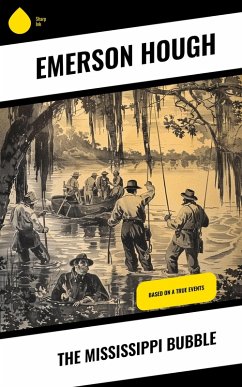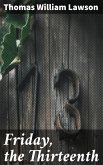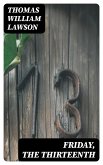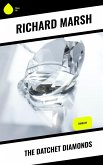In "The Mississippi Bubble," Emerson Hough weaves a captivating narrative that delves into the financial frenzy surrounding the Mississippi Company in 18th-century France. Through a blend of historical fiction and vivid characterizations, Hough captures the intoxicating allure of speculative investment and the ensuing downfall that plagued both high society and the common man. His prose is marked by its rich descriptive style and sharp social commentary, effectively immersing readers in an era defined by ambition, greed, and dramatic economic shifts. The novel serves as a critical exploration of human nature's response to prosperity and peril, making it relevant to contemporary discussions on economic behavior. Emerson Hough was a prominent American author, journalist, and advocate for the American West, whose own experiences likely shaped the depth of understanding evident in this work. Hough's keen interest in history and economics is reflected in his meticulously researched narrative, which reveals not only the events of the Mississippi Bubble but also the societal implications it carried. His background in both journalism and novel writing allows him to present a compelling and authentic portrayal of the era's tumultuous financial landscape. Readers interested in historical fiction, economic history, or tales of human struggle against the backdrop of ambition will find "The Mississippi Bubble" a thought-provoking and engaging read. Hough's insightful portrayal of the consequences of unchecked greed invites reflection on the timeless nature of economic crises, making this book a worthwhile addition to any literary collection.
Dieser Download kann aus rechtlichen Gründen nur mit Rechnungsadresse in A, B, BG, CY, CZ, D, DK, EW, FIN, F, GR, HR, H, IRL, I, LT, L, LR, M, NL, PL, P, R, S, SLO, SK ausgeliefert werden.









